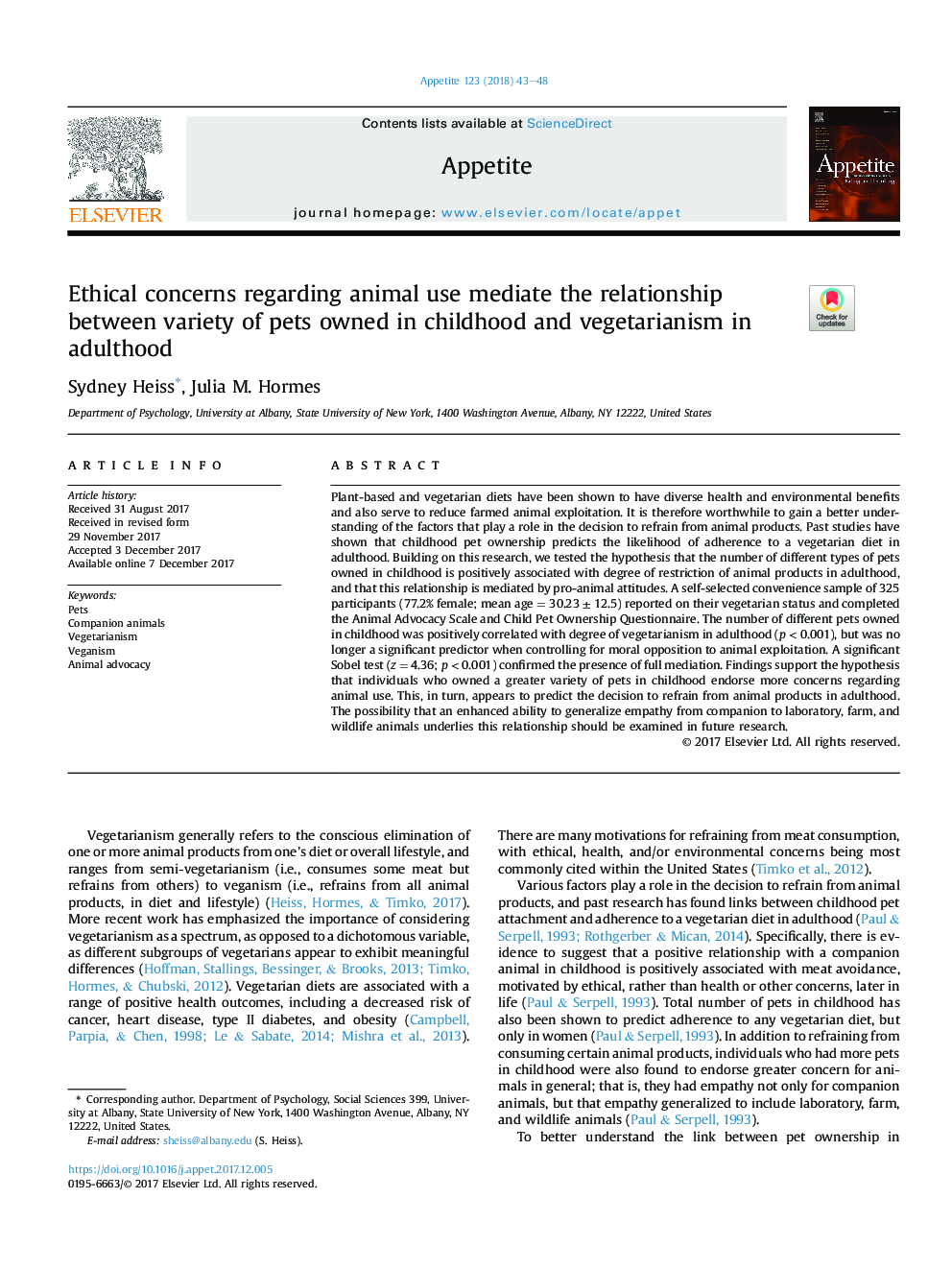| Article ID | Journal | Published Year | Pages | File Type |
|---|---|---|---|---|
| 7305994 | Appetite | 2018 | 6 Pages |
Abstract
Plant-based and vegetarian diets have been shown to have diverse health and environmental benefits and also serve to reduce farmed animal exploitation. It is therefore worthwhile to gain a better understanding of the factors that play a role in the decision to refrain from animal products. Past studies have shown that childhood pet ownership predicts the likelihood of adherence to a vegetarian diet in adulthood. Building on this research, we tested the hypothesis that the number of different types of pets owned in childhood is positively associated with degree of restriction of animal products in adulthood, and that this relationship is mediated by pro-animal attitudes. A self-selected convenience sample of 325 participants (77.2% female; mean age = 30.23 ± 12.5) reported on their vegetarian status and completed the Animal Advocacy Scale and Child Pet Ownership Questionnaire. The number of different pets owned in childhood was positively correlated with degree of vegetarianism in adulthood (p < 0.001), but was no longer a significant predictor when controlling for moral opposition to animal exploitation. A significant Sobel test (z = 4.36; p < 0.001) confirmed the presence of full mediation. Findings support the hypothesis that individuals who owned a greater variety of pets in childhood endorse more concerns regarding animal use. This, in turn, appears to predict the decision to refrain from animal products in adulthood. The possibility that an enhanced ability to generalize empathy from companion to laboratory, farm, and wildlife animals underlies this relationship should be examined in future research.
Related Topics
Life Sciences
Agricultural and Biological Sciences
Food Science
Authors
Sydney Heiss, Julia M. Hormes,
